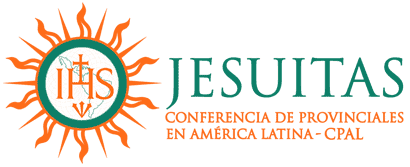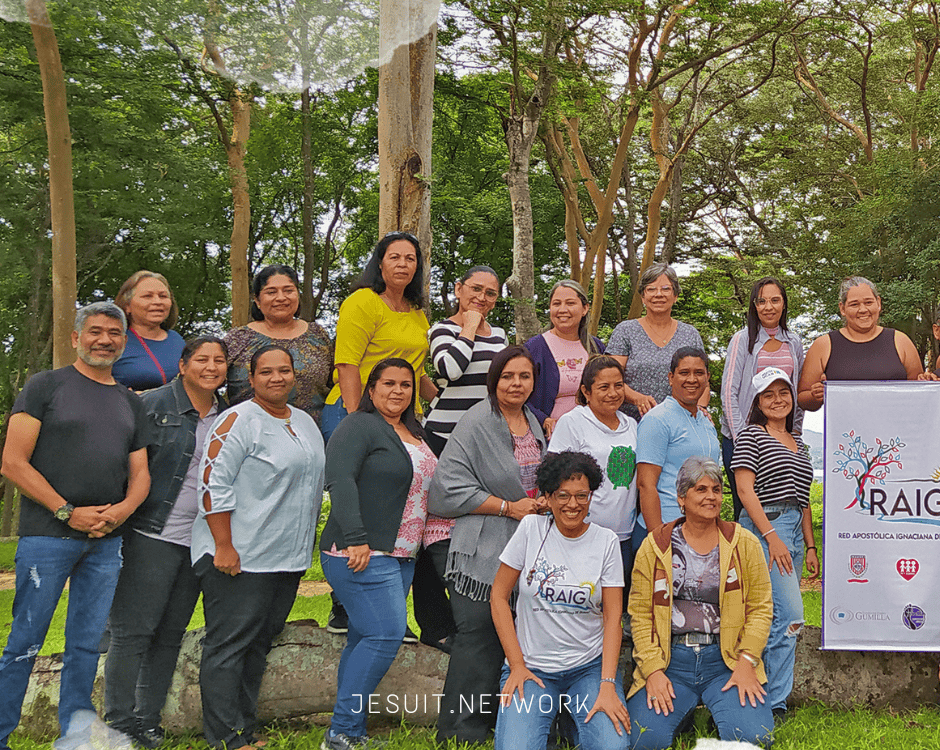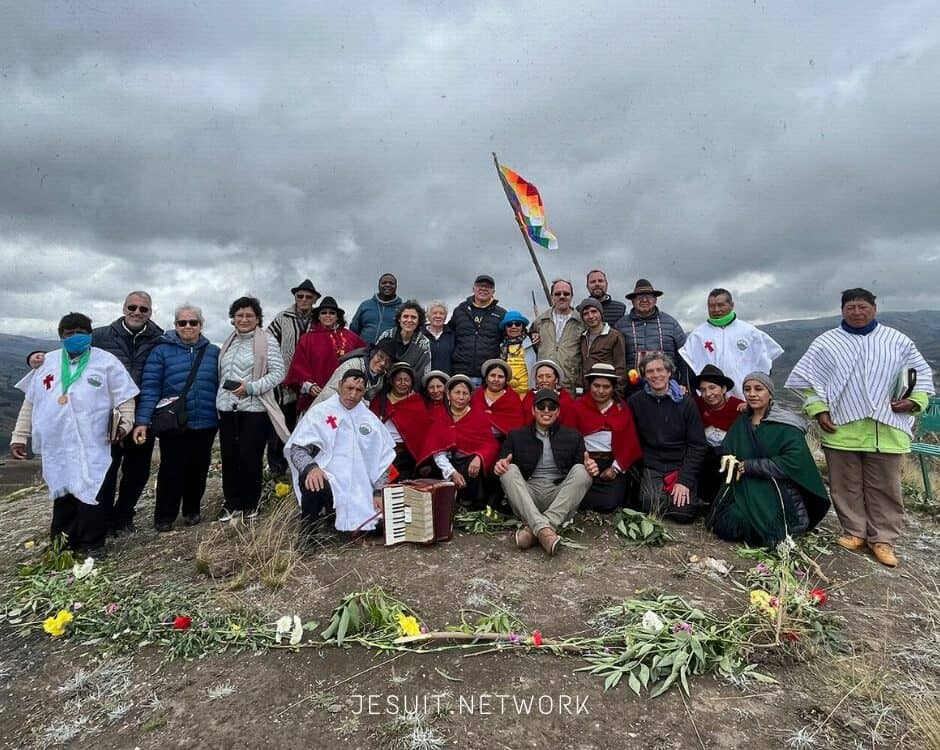This website uses cookies so that we can provide you with the best user experience possible. Cookie information is stored in your browser and performs functions such as recognising you when you return to our website and helping our team to understand which sections of the website you find most interesting and useful.
CPAL networking for social transformation
We are living through a change of era. We are experiencing a crisis of meaning, of values, the socio-environmental crisis that includes human beings and the planet. We cannot predict the future, but we can create it, build it together.
The Conference of Jesuit Provincials of Latin America and the Caribbean – CPAL, is organised in pastoral, educational and social networks; the specific objective of the latter “is to tend that the structures of human coexistence be impregnated and be a fuller expression of justice and charity”. As Father Janssens said: “Charitable works soften some sorrows; social action removes, as far as possible, the very causes of human suffering. The whole mystical body of Christ becomes healthier and stronger.”
Networking is a way of nourishing an experience of faith, inspired by Ignatian spirituality, where Jesuits, lay men and women are co-responsible and collaborate to make God’s mission present.
The social networks that I accompany as Delegate of the Social Apostolate of the CPAL are:
I. NETWORK OF SOCIAL CENTRES
Made up of 38 social centres in the 12 LAC Provinces, it generates spaces for formation, research, reflection, debate and public advocacy for social transformation. In 2022, the RCS will hold virtual forums on: democracy, migration, development models, socio-environmental justice, among others; it will implement an international virtual course on Political and Citizenship Education; the International Diploma in Advocacy, and the Social Laboratory of Advocacy.
The Social Centres, in turn, are articulated in three Peer Groups and the Comparte Network.
- The Peer Group on Integral Ecology, made up of social works from 6 countries, has produced the document “Framework of Orientation for the study and work in Integral Ecology” which will serve as inspiration for all the networks. It takes a critical position on events, such as the recent Public Note on the challenges of COP 26. It carries out its work in coordination with other bodies such as: the Ecology Reference Group, Ecojesuits, the Churches and Mining Network, the Laudato Si Platform, among others. Its coordinator participates and leads the GIAN (Global Ignatian Advocacy Network) of Ecology and Socio-environmental Justice at the intercontinental level.
- Democracy and Human Rights Peer Group, made up of social works from 5 countries. It carries out tasks of reflection, training, research and dissemination. It is a work that is increasingly articulated with the concerns of the universities. In 2022, it will hold a workshop on the Cause/Case methodology. Its coordinator participates in the recently created group: Peace, Democracy and Human Rights of CELAM.
- Microfinance Group, made up of social works from 6 countries. From a popular and solidarity economy approach, they develop training tasks, promote strategies to strengthen local economies and exchange experiences on microfinance and solidarity credits. In 2022, they will hold a forum on “Challenges and opportunities for microfinance and savings groups in the new normality”. They are in the design stage of the Diploma Course “Solidarity economy and microfinance for the local economy”.
- RED COMPARTE, made up of 16 social centres in rural and peri-urban areas in 11 countries, defines itself as a learning and action community for the management of economic alternatives in L.A. Its challenge is interdisciplinary, inter-institutional and inter-provincial work to generate integral alternatives. It coordinates (articulates) with various universities. COMPARTE is generating a certification of agroecological products that integrate social, political, environmental and economic aspects; it is creating a Socio-environmental Audit System (SASA) to measure the environmental impact of the economies. Strengthening the role of women in the economy: “Clara’s Economy”. It is carrying out research on the cultural and environmental features of the Amazon for the implementation of economic alternatives, among other activities.
II. JESUIT NETWORK WITH MIGRANTS – RJM
It involves more than 60 institutions of the Society of Jesus in 19 countries in Latin America and the Caribbean. It works in the defence and promotion of the human rights of migrants, displaced persons and refugees; in the analysis and denunciation of the structural causes of migration, and in the strengthening of a culture of hospitality. It is organised in regional networks: CANA (Central America and Antilles), Caribbean and SURAM (South America). Faced with the growing wave of forced migration, the RJM has great challenges: firstly, to promote the strengthening and/or generation of attention to migrants in each country and region; its lobbying and alliance work with other social organisations and international bodies is fundamental. Another of the RJM’s missions is to ensure that an increasing number of people, organisations, institutions and parishes attend to this vulnerable population through the Culture of Hospitality, promoting intra- and inter-provincial, inter-sectoral and inter-religious work.
III. NETWORK OF SOLIDARITY AND INDIGENOUS APOSTOLATE – RSAI
Teams from seven provinces are involved in this network, serving different cultures in the Andean, Amazonian, Mesoamerican and Southern Cone regions. It is one of the oldest networks of our Conference in which the word and the protagonist presence of the indigenous people, young people and adults, from different regions have been integrated. Thus, from the experience of insertion among different indigenous peoples, we not only accompany their causes and attend to their pastoral needs, but we also reflect, systematise, make visible and disseminate the ways in which indigenous peoples see reality.
IV. REFLECTION TEAM ON RELIGIONS AND INDIGENOUS CULTURES OF LATIN AMERICA, which has carried out an important reflection on “Good Living” with the confidence of contributing to a new post-pandemic coexistence (harmony between person, community, nature, territory), which is being systematised. Its contributions were important in the preparation and realisation of the Synod on Amazonia. ERCRILA’s reflection is also oriented towards inter-religious dialogue, and has recently taken on board the concerns and tasks of the Afro-American Group of CPAL.
In addition to these networks that I accompany as Delegate, in CPAL we find the LATIN AMERICAN NETWORK OF JESUITAS RADIOS with an important work in more than 100 popular, commercial and educational radio stations, and the PANAMAZONIAN JESUIT SERVICE whose main mission is to collaborate in the articulation of the diverse Jesuit presences of the continent in wider ecclesial and social plans.
For these networks to have a practical effect on social transformation, in addition to collaboration, they need to have and implement increasingly clear and defined joint strategies: “The key to the construction of this strategic vision will be in our spiritual attitudes. In particular, we will need a lot of freedom, what Ignatius called indifference, to be able to encounter and collaborate with the God who works in this broken world.”
Article by Carmen de los Ríos, delegate of the Social Apostolate of the CPAL





